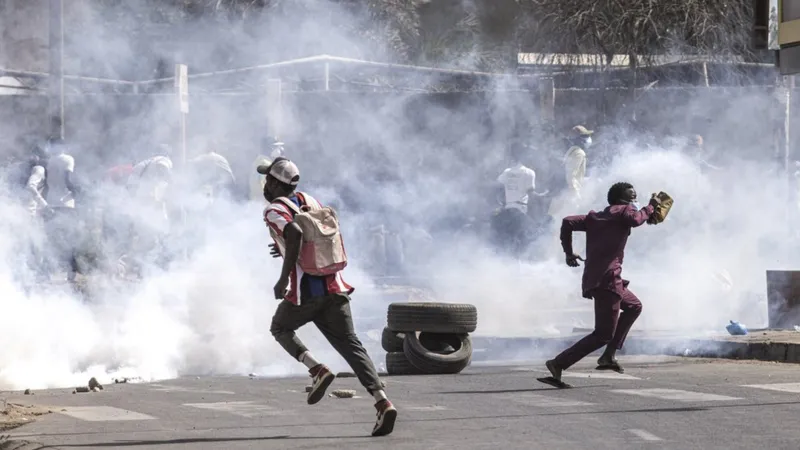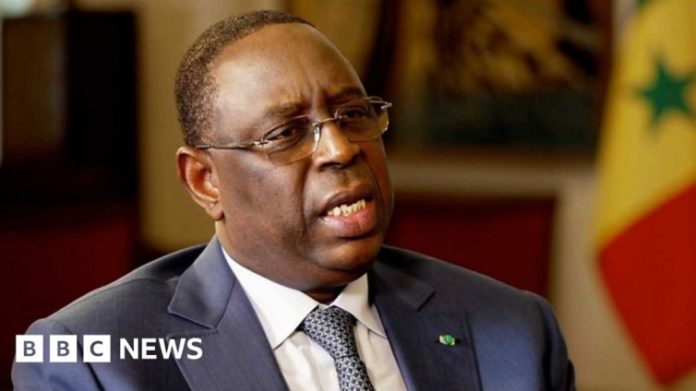Senegal‘s president has told the BBC he does not regret delaying this year’s elections, a move that sparked deadly protests.
Macky Sall said he did not make the decision alone – he was responding to concerns raised by parliamentarians.
After a violent backlash, many feared the relatively stable nation was slipping into political crisis.
But the attempt to push the election back by 10 months was blocked by Senegal’s top court.
The vote will now take place on Sunday – a month after it was initially due.
“I have no apology to make, I have done nothing wrong,” President Sall told the BBC.
“All the actions that have been taken have been within the framework of the law and regulations.”
With just three weeks to go before the 25 February election, Mr Sall announced that it would be delayed, a move that was later approved by parliament.
Critics accused Mr Sall of trying to stay on beyond his term of office, which the president denied. He argued that the delay was needed to resolve a dispute over the eligibility of presidential candidates.
He says it was opposition politicians who raised these concerns.
“If it had not been for the National Assembly which passed the law, which referred it to me, there would not have been the postponement of the election,” he said.
Mr Sall’s announcement sparked violent clashes between police and protesters, in which three people died.
Many feared that Senegal’s reputation as a bastion of democracy in an unstable region was on the line.

Senegal has had three peaceful handovers of power since independence and is the only country in mainland West Africa that has not experienced a coup.
Mr Sall told the BBC that the recent unrest “shows that there was an information campaign targeting Senegal and its president”, as there is “just one month” between the original election date and when the vote will now take place.
He added: “I am truly surprised by the value judgements made about me. If I wanted to stay, I would simply be a candidate. In Africa, everyone can have five terms if they wanted.
“If that had been my decision, no one could have stopped me, except the Senegalese people who vote.”
Last week, Senegal’s main opposition leader and one of Mr Sall’s fiercest critics Ousmane Sonko and his party’s presidential candidate Bassirou Diomaye Faye were released from prison under a presidential amnesty.
Mr Sonko has been prosecuted on a series of charges, all of which he says were politically motivated as a way of excluding him from the election.
Because of a conviction of immoral behaviour with a minor, he was barred from contesting and Mr Faye is standing in his place.
Some leading opposition candidates were also excluded from the previous election in 2019.
But President Sall denied that the charges against his rivals were politically motivated.
“It is not because you are a politician that you should not answer for your actions before the law,” he said.
He also said Mr Sonko, and others, would have been able to stand if the elections had been delayed for longer.
“If they had followed me, there would have been a process where all the actors were candidates,” Mr Sall said.
President Sall has served two terms in office – the maximum allowed by Senegal’s constitution.
In his interview with the BBC, he repeated his pledge not to overstay.
“If the next president is not elected on the 24th [March], I’m leaving on 2 April regardless. That is the deadline, and I don’t intend to stay on another day,” he said.
Amadou Ba, who was Mr Sall’s prime minister until he stood down to campaign, and Mr Faye are seen as the favourites among the 19 candidates.
If none of them gains more than 50% of the vote, there will be a second round.
ALSO READ:


